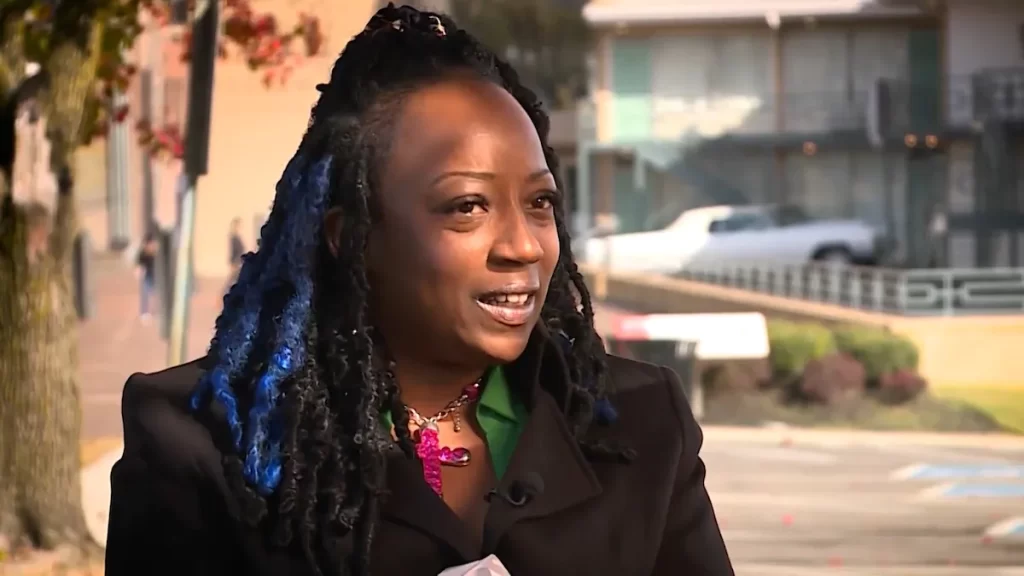
Pamela Moses, a 44-year-old Tennessee black activist, was sentenced to six years in prison Monday. Her case is a textbook example of our justice system’s duality and why Critical Race Theory is needed in our schools.
Ms. Moses crime?
Despite having a felony conviction, which barred her from voting in Tennessee, she attempted to register to vote in 2019. She was convicted even though it appeared her attempt to register was an error aided by misleading state documents and officials’ misstatements.
More egregiously, she got her six years in prison for attempting to register, while several white men who committed voter fraud in the 2020 elections walked away with probations in all but one case. One received three days in jail.
While Trump and his cronies committed the most dangerous electoral fraud—trying to overturn a free and fair election– they are still roaming free, planning to do it right the next time.
While Black Lives Matter protestors are “terrorists,” the architects and foot soldiers of the Jan. 6 attempted coup are patriots engaged in “legitimate political discourse.”
Justice vs. Just us
Why does this justice system’s duality persist?
That is one of the questions Critical Race Theory tries to answer.
How does the law construct race? How has the law protected racism and upheld racial hierarchies? How does the law reproduce racial inequality? And how can the law be used to dismantle race, racism and racial inequality?
Professor Janel George on questions underling Critical Race Theory
According to Janel George, associate professor of Law at Georgetown University, “The foundational questions that underlie Critical Race Theory and the law” include the following:
“How does the law construct race? How has the law protected racism and upheld racial hierarchies? How does the law reproduce racial inequality? And how can the law be used to dismantle race, racism and racial inequality?
“CRT recognizes that race is not biologically real but is socially constructed and socially significant,” Ms. George wrote.
“CRT recognizes that racism is codified in law, embedded in structures and woven into public policy.”
One can understand then why Republicans are going to war against CRT. They see it as a threat to white privilege. They see no future for their party in raising questions that would debunk the political messaging that energizes their base.
The war against CRT is not new.
For decades conservatives have fought to control the content of the nation’s history and social science curriculum frameworks. We’ve seen it here in Massachusetts.In 2018, for example, the Pioneer Institute, a Boston think tank, released a white paper titled, “No Longer A City On A Hill.
The Institute argued that Massachusetts had degraded its history standards by including sequences that provided less than a full account of “our country’s European past and its own exceptional history.”
“The 2018 Revision replaces much of… {our exceptionalism}…with the history of politically correct protest movements,” the paper said in part.
Based on those 2018 revisions, the Fordham Institute commended Massachusetts as one of only five states with “exemplary” history and civics standards last year.
The state did not “whitewash, downplay, or neglect the many painful chapters in our nation’s history,” Massachusetts officials explained.
But the fact that Massachusetts history and social studies curriculum provides a more wholesome account of the country’s history doesn’t necessarily mean racist practices and policies are retreating.
Worcester residents will remember that the city sacked former Superintendent Melinda Boone precisely because she implemented practices informed by the lived experiences of city students.
Many city leaders, school principals and teachers believed Ms. Boone’s actions degraded the school system. So, they replaced her with someone who supported increased police presence in schools, who didn’t think the law reproduces racial inequality.
That Worcester, a city controlled by democrats, would so easily capitulate to those opposing change benefiting minority families is one reason Republicans will continue to gain ground in their war against CRT.
Whitewashing the past legitimizes the racism on which far too many Americans depend to maintain their privileged status.
